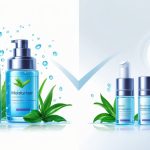Retinol Alternatives Dermatologists Quietly Endorse for Sensitive Skin
So, yeah, tried drugstore retinol—face basically peeled off. “Gentle,” they said. My dermatologist took one look at my rash and just sighed, told me to try peptides, bakuchiol, maybe niacinamide. Apparently, a bunch of derms are actually nudging sensitive skin people into retinol alternatives, not just the prescription stuff. Makes sense—nobody wants to wake up with a tomato face. Dr. Janet Allenby (she’s quoted everywhere) says like 35% of people quit retinol because of irritation. I believe it. Why would anyone stick with something that makes you look sunburnt in the middle of the week?
Meanwhile, every skincare forum is obsessed with brands like Mother Science or Paula’s Choice, but not one person explains how to avoid doubling up on exfoliants. You add a serum, forget you already moisturized, and suddenly your skin barrier is toast. Story of my life.
But here’s what bugs me: why are these alternatives only “quietly” endorsed? My derm says brands don’t hype stuff like bakuchiol or ectoin (try spelling that without spellcheck), even though studies say bakuchiol can match retinol for anti-aging, minus the drama. Half my friends can’t even pronounce bakuchiol and it’s hiding in their night creams. (Yes, I checked. Sorry not sorry.) Anyone else mix up acids and end up with a face begging for mercy?
Why Seek Retinol Alternatives for Sensitive Skin?
Nobody warned me retinol would force me to memorize my dermatologist’s voicemail. Peeling cheeks? Not a look I’m going for. Chasing “anti-aging” is apparently just dodging irritation. And it’s not just me—one in three retinol users gets redness or worse. If that’s not a red flag, I don’t know what is.
Understanding Retinol and Its Limitations
Retinol. Vitamin A. The “gold standard,” right? Supposedly fixes lines, speeds up cell turnover, whatever. But honestly, it feels like a dare. Prescription retinoids? Too much. Even the “mild” drugstore ones can turn your face into a flaky mess. Yeah, collagen goes up, but so does the chance of looking like you’re molting.
Dr. Marcus (she’s in all the derm journals) always says even a dab can set off weeks of redness. And get this—light and air kill off the active ingredients before you finish the bottle. So you’re paying for a serum that’s basically dead by month two. Gorgeous glass packaging? Great for Instagram, terrible for keeping the stuff inside actually effective.
I want collagen, sure, but not at the cost of showing up to work looking like I lost a fight with a cheese grater.
Sensitive Skin Concerns with Retinoids
Eczema? Forget it. If your skin’s sensitive, retinoids almost guarantee peeling, burning, and random freakouts. Every time I tried to “build tolerance,” it just felt like a failed science fair project. One dermatologist told me, “Sensitive skin is like protest—you can’t ignore the flares.” No kidding.
People say “start slow,” but if your barrier’s already wrecked, there’s no “slow” that helps. Even “gentle” formulas? Still a gamble. Studies say over 60% of sensitive or rosacea-prone folks just give up on retinoids.
It becomes this endless cycle—try a new product, get red, shelf it, repeat. Most retinol routines want you to layer on moisturizers, SPF, and take “rest weeks.” So, what exactly are we treating? I’m still confused.
Dermatologists’ Insights on Safer Options
Dr. Chang once said at a conference, “Bakuchiol isn’t retinol—doesn’t mean it’s useless.” Peptides are sneaking into ingredient lists everywhere. They tell your skin to repair, not self-destruct. Niacinamide (B3) somehow strengthens your barrier and calms redness—science backs it up, ingredient nerds love it.
More derms are suggesting bakuchiol or niacinamide for nighttime, instead of risking the retinol meltdown. Bakuchiol’s been in legit clinical trials and nearly matches retinol for wrinkle reduction, minus the chaos. That’s more convincing than any influencer.
But, of course, it’s always “read the ingredient list, patch test, don’t expect miracles”—and most tips come from side conversations, not official guidelines. With all the vitamin A drama, alternatives aren’t a fad; they’re survival. Now, where’s the serum that comes with guaranteed sleep, though?
What Makes an Effective Retinol Alternative?
Lost count of how many times someone said, “Just use bakuchiol, you’ll be fine.” Lies. My skin still throws tantrums. Finding a retinol swap that smooths, boosts collagen, and doesn’t destroy my face? Not as easy as TikTok promises. Derms mumble about “actives” and “non-irritant profiles,” but if your skin actually flares, you know there’s always a catch.
Key Features Dermatologists Recommend
Every derm I trust repeats the same things: collagen support, antioxidant protection, calms inflammation. But it’s not just about “looking younger.” Bakuchiol is everywhere, but experts also love niacinamide, peptides, and Centella asiatica (tried it, meh, but some people swear by it). Dr. Kazlouskaya told Women’s Health retinol alternatives “should increase cell turnover and help texture, pigmentation, and tone”—kind of a tall order for a plant.
Weirdly, sometimes the best option isn’t the buzzy new thing. Alpha hydroxy acids—glycolic, lactic, citric—sometimes do the retinol job, smoothing and brightening, but don’t always play nice. And, plot twist, some people react to “gentle” stuff just as badly. Honestly, the more I read, the less I know why bakuchiol is suddenly everywhere.
Criteria for Sensitive Skin Suitability
People act shocked when “non-irritating” stuff nukes their barrier. “All-natural” doesn’t mean my cheeks won’t freak out. Derms who get it warn against alcohol-heavy serums, essential oils, or those “pure” herbal oils (rosehip oil gave me a rash, thanks for nothing). The “barrier-supportive” buzzword is real—ingredients need to help, not hurt.
Some experts swear by layering ceramides or mild antioxidants (vitamin E) before anything strong. Here’s a random tip I heard at a conference: “If it tingles, it’s too much.” Not exactly science, but patch tests have saved my face (and budget). Remember how glycolic acid is “gentle” but still fries some skin types? Ignore bold claims—check concentrations and how the product’s made. Formulation beats ingredient every time. Instagram never mentions that.



